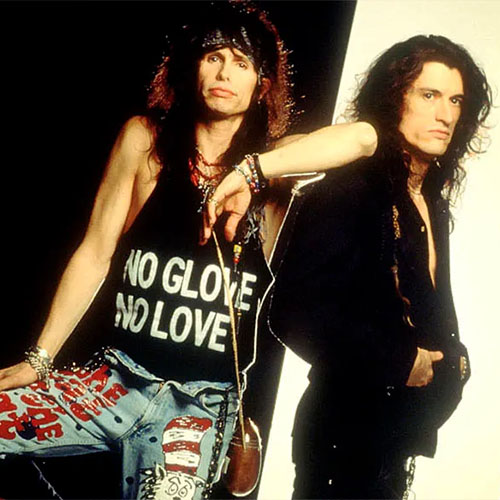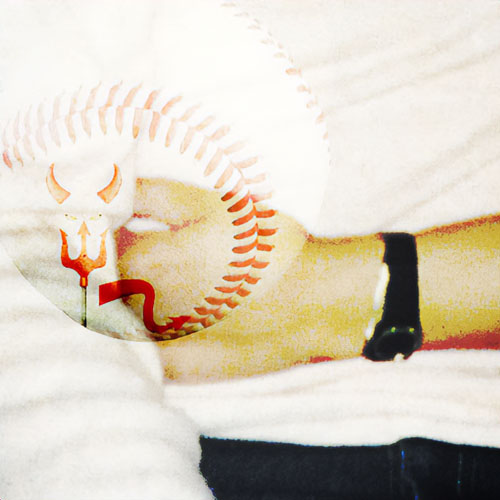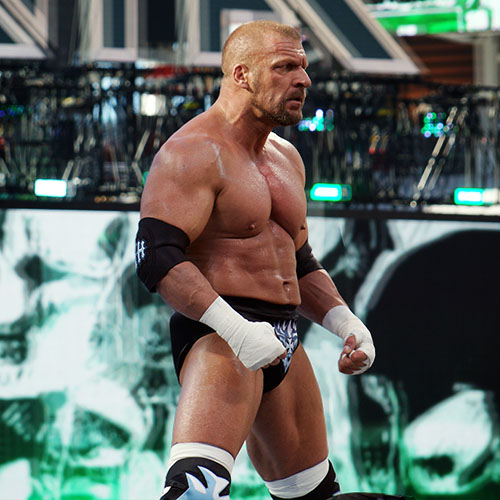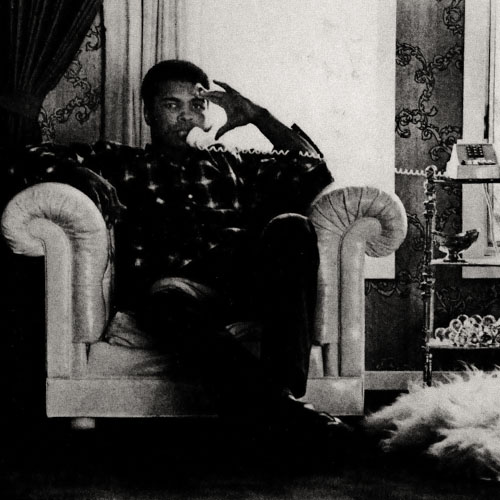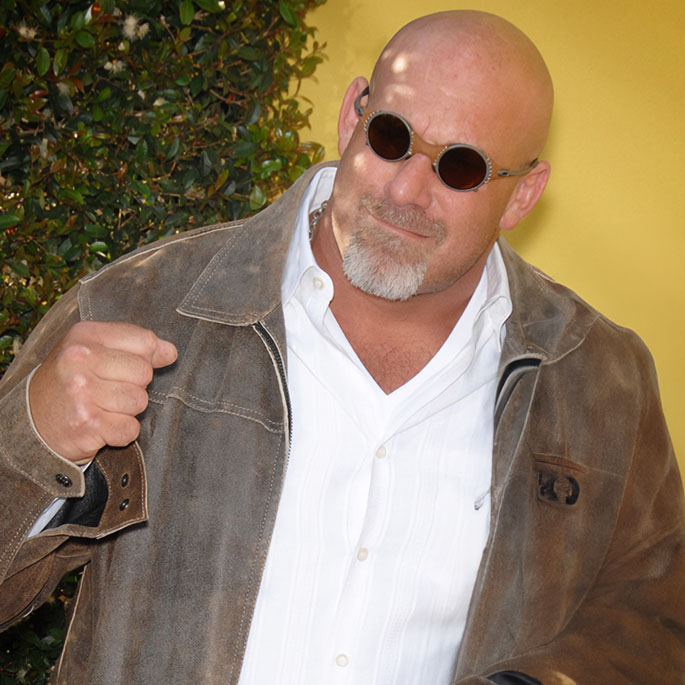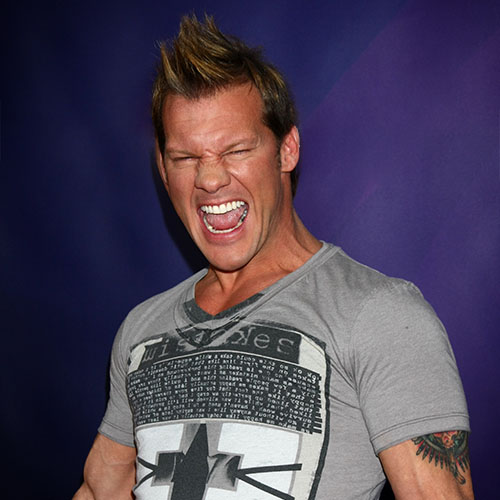To the millions who witnessed it, the scene from November 19, 2004, was like a train wreck — horrifying, yet impossible to turn away from.
Welcome Back?
Every television outlet, from cable to network, replayed the grisly footage over and over — and over — again: children crying, fists flying, bodies flailing, debris strewn about, and clusters of seemingly average citizens venting murderous rage. But these images weren’t coming from the Middle East. They were beaming out to the world from the Palace of Auburn Hills, Michigan, where the Detroit Pistons were playing the Indiana Pacers in an NBA game.
With 45.9 seconds to go in the fourth quarter, and the visiting Pacers on the brink of a 15-point victory, Indiana forward Ron Artest was called for a flagrant foul on the Pistons’ Ben Wallace. Wallace retaliated with an open-handed blow to Artest’s chin. The two players were separated, and the referees huddled to assess the situation.
Oddly, Artest, who has a history of flare-ups, lay down on the scorer’s table — almost as if to say, “I’m calm. It’s over.” That’s when a beer cup flew out of the crowd and hit him squarely in the chest. Artest leapt up and charged into the stands, heading for one very frightened spectator. Pacers swingman Stephen Jackson followed him, and a full-blown melee erupted. Fans rushed the court. Artest pummeled one spectator as others grabbed him from behind. Jermaine O’Neal took a running punch at a would-be local hero in front of the Pacers bench. There was more. None of it was pretty. All of it was caught on camera.
Suspensions and fines were levied. Criminal and civil charges were filed. Sports writers, editorial pages, and talk shows decried the end of civilization — or at least the end of professional sports. Bloviators from all quarters weighed in. What kind of violent society had we become, and what responsibility did professional sports bear?
Artest became the poster boy for the pro-sports apocalypse. The NBA suspended him for 73 games, costing him approximately $5 million in salary and making it the longest and most expensive suspension in league history. Just days after the incident, Artest went on The Today Show and, appearing only somewhat contrite, took the opportunity to promote a new CD from his record label. Just days after that, his Website began selling FREE RON ARTEST T-shirts for $15.99.
The merchandising of his persona non grata status did little to improve his public image. That was a year ago.
I spent a day with the man as he prepared for the 2005–06 NBA season, and I’m not sure if I’ve ever met anyone so placid and easygoing. The Ron Artest I met bore no resemblance to the emotional time bomb who hurled a TV camera onto the court at Madison Square Garden in 2003, or bumped coach Pat Riley in front of the Miami Heat bench that year, or tried to take on an entire hostile arena at Auburn Hills. He was patient, professional, good-humored, and downright serene. Even the music has gotten kinder and gentler — Artest’s new single, “Oh Yeah,” is a catchy mix of smooth R&B and rap. “I don’t want to put out songs that no one will play on the radio,” he says. “No more hard rap.”
Artest was also eagerly looking forward to the new season. In 2003–04, the last season in which Artest played a full schedule for the Pacers, the team finished with the NBA’s best regular-season record. Artest was voted Defensive Player of the Year and made third-team All-NBA. He had arrived as a force in the league. At the time of his suspension last season, he was averaging 24.6 points per game. Yet without Artest (and with O’Neal missing 38 games), the Pacers exceeded everyone’s expectations, advancing to the Eastern Conference semifinals, where they gave Detroit a stiff challenge before bowing out in six games.
That set the stage for the current skyhigh expectations in Indianapolis. Watching Artest scrimmage this summer, the Pacers’ president of basketball operations and resident legend, Larry Bird, called him “the best player in the league on both sides of the ball.” (Bear in mind that basketball compliments from Larry Bird are about as frequent as snowflakes in Florida.) The Pacers organization and its fans want an NBA title this year. They just may get it.
Of course, much of this depends on Artest — his performance and, for lack of a better phrase, his anger management. Returning to the NBA after a year’s suspension, Artest will face constant scrutiny, especially at the start of the season. He’ll probably encounter some provocation from opponents and fans alike. How will he respond?
Before we sat down to talk, Artest asked for a turkey and cheddar sandwich, no tomatoes. The sandwich arrived and he dug in. It had tomatoes. I braced myself, but the Pacers firebrand took it in stride. Of course, a sandwich ain’t a season.
Whatever people say about the brawl in Auburn Hills, it certainly proved that your teammates had your back. What did that tell you about the guys on your team?
It’s good to know that you’re going into battle with guys that are ready to go — ready to fight. And at the same time, you don’t want to ever get in that situation again. But it feels good to know we got 14 guys, coaches included, really supporting each other and getting the support of the Pacers organization.
The Pacers did surprisingly well in your absence last year. How do you feel about Indiana’s chances for a title this year?
I think our chances are great. We had a really good season. And now there’s me added to the team, which is really going to help us win the championship.
Coach Rick Carlisle did an amazing job last season with so many key players out for so many games. Does he get the credit he deserves?
No, he’s not getting the credit he deserves because he’s in Indiana. He should’ve been Coach of the Year last year. Look what he did. The team had a lot to do with it, but the coach had a lot to do with it, too.
The Pacers drafted shooting guard Danny Granger out of New Mexico and added Lithuanian point guard Sarunas Jasikevicius. But the Miami Heat also stocked up in the off-season, acquiring Antoine Walker, Jason Williams, and James Posey to go with Shaq and Dwyane Wade.
The Heat got better because Antoine Walker — although he shoots a lot — can pass the ball and rebound. James Posey is a great defender. And Jason Williams is a really good point guard. But I still think we’re the team to beat.
Which player are you looking forward to defending against?
I like LeBron James. He’s awesome. He’s the best right now, I think. I like to play against the best.
Who is the toughest man for you to guard in the NBA?
Probably Rip [Hamilton, Pistons swingman]. But you know, after every game I’m pretty sore no matter who I’m playing against.
Who is the dirtiest player in the NBA?
[San Antonio Spurs forward] Bruce Bowen is pretty dirty. [Cleveland Cavaliers point guard] Eric Snow is a lot of hands. A lot of people say I play dirty. But I just play good D. I slide my feet. Yeah, I grab a little bit. [Laughs] But for the most part, I slide my feet.
There are a lot of players in the NBA who grab and the referees don’t call it.
Are there any conflicts between your personal goals and your team goals?
It’s all team goals. I got all the awards I can get: All-Star; third-team All-NBA; Defensive Player of the Year, which is like MVP. There’s just one more goal and that’s it — the championship.
In your rookie year with Chicago, you took a temporary position at Circuit City. Did you pick up any part-time work last year, after you lost almost $5 million in salary due to the suspension?
This time I was a music intern. I wasn’t getting paid, but I was developing music for [my label] Tru Warier. I did some groundwork, and the single is about to come out.
You also did a lot of roadwork in your year off, working out five times a day. What was your routine?
During last season, I was working out like there was no tomorrow. Swimming in the morning, and then again at night. Basketball drills in the morning, then full court after that. Plus weights.
What kind of fan mail did you get?
Man, I got a lot of fan mail. We made a million dollars on the Website. Before that, the site only made like $20. Fans totally supported me. That’s why I sign autographs for everybody. I got hate mail and stuff like that. But for the most part, it was fans from all over — Africa, Japan — showing tons of support.
During your 73-game suspension, did the NBA require you to attend any anger-management classes?
People suggested stuff, but I just thought it’s simple enough: Things that I have done can’t happen. It’s as simple as that. There was no need for therapy or anything like that. I think it’s good if you can find somebody that you can talk to and just be open. If you feel something isn’t right and you want to change, then talk to a family member or friend. That helps me.
I hear that all those classes do is test you in hypothetical situations. For example, let’s say I walk into a movie theater and accidentally spill popcorn on you as I walk by. What do you do?
Nothing.
Let’s talk about the brawl. You chose not to react against Ben Wallace.
It’s so funny because people say, “Oh, you chose not to react, but you reacted against the guy who you thought threw the beer.” Those people are saying Ron Artest is a punk. But if Ron Artest reacted against Ben Wallace, those same people would say Ron Artest is crazy. That’s why I feel good in myself.
That’s why I’m glad I didn’t react against Ben Wallace, because it showed some maturity. It showed some growth.
How much of a factor in your nonreaction was the fact that Ben Wallace is six foot nine, 240 pounds?
I’m 260 pounds. You know what I’m saying? So it wasn’t a big problem with Ben. It’s just that there was no reason for me to be fighting at that time. We were winning. There’s only so much you can take, man, you know? I did enough fighting. I did enough of the thug stuff — enough of the wild stuff. It’s enough! There’s no need to fight this season. Now with Ben Wallace, it’d be a different story. If he attacked me like that again, there’s a good chance we’ll be rumbling on the court. But there’s no need for it right now. On the court, we’re just trying to win. And if we have to fight, we’ll do it.
When you charged into the stands, did it cross your mind that the person you were attacking might not be the person who threw the cup?
No, because what happened when I got hit was that guy [the one he went after] was cheering. Nobody says that, though. He was cheering! There’s no reason to be cheering at that point. The game is not going on. There’s a fight going on, and I just got hit with a cup. And he’s like, “Yeah!” [Mimics a fan cheering.] And I’m like, “Oh, you hit me with a cup. What are you cheering for?” So I attacked him, and then I caught myself: Oh man, this is crazy. I’m in the stands with about 20,000 people about to fight. Then the guy, John Green [the man who threw the cup], he’s so punked out. He’s so punked out. He held me, and then sucker punched me in the back of my head.
He’s got a bit of a history himself, doesn’t he?
Everybody that night, except for the person I mistakenly thought threw the beer, was a felon. But they treated me like I was a felon.
You received the biggest fight suspension in NBA history. Was it fair?
It wasn’t fair. Not at all. But hey, you deal with it.
How much did race have to do with the way the media responded to the brawl?
It probably had a little bit to do with it. Because the media, they control everything — the way they edit. It’s like a big game. People say, “Why is Ron [Artest] always joking?” First off, there’s no reason to get so personal, and second, the NBA is entertainment. You know, the cheerleaders in those little shorts? Jennifer Lopez on the commercials? They have a division called NBA Entertainment. That’s why I promote a lot and joke when it’s not a good time to joke — because it’s entertainment. Even though I’ve been through some stuff, I’d still like the NBA to be clean and have a good image. But sometimes the media gets too serious when I say, “Hey, I’m not answering that question. But you know, my album’s coming out.” They just get very upset about that.
Fighting is relatively common in baseball and very common in hockey. Why can’t the NBA just accept that when men compete at the highest levels, fights happen?
What they should do is have me and Ben Wallace go on Pay-Per-View and fight for, like, ten million dollars. People would want to see that. I’ll fight him. Maybe we use headgear so nobody gets brain damage. Well, maybe with me and Ben Wallace, we should just use gloves and fight. But it should be a part of the game. They should just be like, “You want to fight? Okay, go fight in the ring. Use the body gear so you don’t break ribs. Use the headgear and go two rounds.” After the game: a fight. Fans would love to watch that.
Let’s say you’ve spent all day at the beach building a sand castle, and I accidentally fall on it, destroying it completely. How do you react?
I don’t. It’s just an accident. So leave it at that.
In a recent Slam magazine interview, you said, “I’m a ghetto-type guy…. I’ll be ghetto for the rest of my life.” What does that mean?
That’s like a symbolization of me. Because I want people to understand just because somebody’s wild, doesn’t mean they’re crazy. It’s just how we grew up. And that’s the best label that I can give to let people understand the type of person that you’re dealing with, the things I’ve seen.
A lot of people in entertainment and sports are from neighborhoods such as mine: white, black, Chinese, or whatever. Like [Sacramento Kings forward Peja] Stojakovic and those guys come from the ghetto. Those types like Stojakovic and Vlade Divac [of the L.A. Lakers], they got their own label. And some people are a little more ghetto than others. I’m still in the ghetto now. I do a lot of things in the ghetto and sometimes it rubs off on me. But at the same time, I know I gotta change the kids because I want people to get better, not stay there and just go to jail. That’s my ultimate goal: keep young people out of jail and destroy the business of jail.
As a young child, you watched your father commit violent acts against your mother. How much does that affect you?
People in jail always talk about, “When I was young, when I was young.” And I think it’s true that when you’re young, things affect you and continue affecting you when you’re older.
But now I’m at a point where I’ve had so many things go wrong in my life and I’m wondering, “Why, why, why?” I think most of the time, it goes back to how I grew up, where I lived, and my environment. Now it’s up to me to not let it affect me. That’s the kind of thinking that’s been helping me.
Bill Cosby has claimed that African Americans in lower economic brackets “are not holding up their end of the deal.” He said parents are buying “$500 sneakers … and won’t spend $200 for Hooked on Phonics.” What do you think of those comments?
He’s right! People are leaving the youth out to dry. Everybody now is buying jewelry and all kinds of stuff, but they’re not telling kids the truth. I did a video with girls and all this other stuff. Maybe I should have a different type of video. Kids need to learn other things besides wearing Michael Jordans, wearing $100,000 jewelry, or driving a Bentley. There’s other things the youth need to know because when they get older, it’s going to be too late for them to understand what life is about.
You do a lot of charity work. Do people know that about you?
That’s important in my life. I’d give up my whole salary this year if I could get 20 more millionaires to give up their salary this year to help people. Hey, I’m living great, but some people are not. I think God is in everybody, so it’s good to take care of your people.
You are a young, good-looking, wealthy guy. How hard is it to fend off temptation on the road?
I love my wife so much. For the song “Oh Yeah” and most of the songs on the new album, I get the inspiration from my wife. It’s that R&B love music. Even though I rap, I’m married. I’m not your typical rapper.
Look, the females are very pretty and everything, but it’s not like your wife. You know what I’m saying?
In rap there’s something called a beef recording — a track on which a performer hints at violence or defames another. Anyone in the NBA you’d make a beef recording against?
Nobody really disrespects me like that in the NBA. Actually, I’m not really into the beef. The beef is just so crazy. In the NBA, a fight is just a fight. In real rap, it’s gonna turn serious.
Let’s say we’re on the crowded subway and I step on your foot. What do you do?
Just move on — as long as nobody does it on purpose. I was in a club recently and somebody stepped on my foot on purpose. But he walked away. He didn’t really want to do anything. He acted like he was hard but he walked away, so I let it slide.
Being on the edge emotionally is a big part of your game. Are you worried about keeping too much in check this season?
No, I’m going to play really, really intense and really hard. That’s it. I’m not gonna change my game.
Are you worried about possible overreaction to your first technical foul or on-court flare-up?
If I get a technical foul, it should be no different from anyone else. It’s a new day. I don’t think people should make a big deal about it. Hey, people get frustrated. Tim Duncan got a technical foul. And I don’t really get technical fouls. It wouldn’t take two hands to count how many technicals I’ve had.
Any resentment toward Ben Wallace for winning the Defensive Player of the Year award while you sat out?
Everybody says that if I was there, I would’ve gotten Defensive Player of the Year. And they say the year [2002–03] that I got all those technical fouls, ejections, and suspensions, that’s why he won Defensive Player of the Year. Then I came back and had a good-citizen type of year [2003–04]. So I think I cheated myself of having won three Defensive Players of the Year and three All-Star Games and a bunch of third-team All- NBAs. I could have a lot of personal awards stacked up by now.
You and Larry Bird come from very different worlds, but have similar basketball styles: nonstop intensity, pride on defense, ultra-competitiveness. What’s your relationship like with Bird?
It’s great. We’re definitely from different backgrounds, but I think God put us together for a reason. He’s been able to forget about all the stuff I’ve done in the past and teach me how to play. He understands my intensity, but at the same time, he doesn’t want me to affect the team’s ability to win.
I owe it to him, the president of basketball operations, to show him that I can play basketball.
Critics of the NBA cite a lack of fundamentals as hurting the league. What do you want to tell those critics?
I think they’re making the game soft. The overseas players are tough, but when they got here, the league started saying, “No hand-checking.” So they’re changing the game. They should keep the game intense and tough like it was five years ago. I know scoring is down and they want it to be more exciting. I understand that it’s a business. But as far as a lack of fundamentals, the NBA is more focused on team, and overseas they’re more focused on individual game.
Really? I think a lot of people would say it’s the other way around.
The European practice is better if you want to improve individually. In the NBA, you get better as a team.
What about San Antonio? They won the championship last year with several non-Americans and what some called a European style.
They have a couple overseas players, but I think they won because they’re tough. They play hard. They got good shooters.
I guess you’ll be guarding Manu Ginobili?
I’ll have to. He’s the toughest guy out there. Bruce Bowen will guard me. So their best defender is guarding me, and I’m guarding their best offensive player. It’s kind of cool.
I saw that Milwaukee Bucks guard Kendall Gill won his first professional boxing match. Are you still considering a boxing career yourself after you retire from pro basketball?
Yeah, Kendall beat me to the punch. If I could box right now, I would. I spoke to Angelo Dundee. He was going to train me. We were talking regularly until all that stuff happened last year. One day I will box professionally. It’s something I love. My father was a boxer. A lot of people in my old neighborhood box. My wife gets tired of how much boxing I watch. I TiVo boxing every night. I’d love to fight in three years. Start working out now, then go professional to take on Vitali or Vladimir Klitschko. I’d like to fight one of them before they leave.
Let’s say I’m walking down the street next to you and I accidentally step on a ketchup packet, which sprays all over your new suit. How will you react?
I’m gonna be like, “Damnit!” And then, move on.
How do you and your family like living in Indianapolis?
I love it out there. My family loves it. And the people like me out there. They want to see me win a championship.
I hear you got into baking.
Yeah, I can bake an ice cream cake. It’s very good.
















